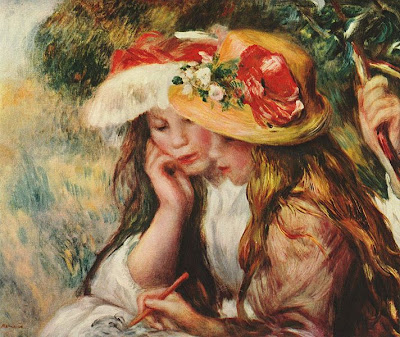LOOKING
FORWARD, LOOKING BACK
Writtle
Singers at All Saints’ Church
11.11.17
Unaccompanied
songs of anticipation, grief and regret in this beautifully crafted
sequence of music and readings.
The
Singers began with Sterndale Bennett’s 1846 setting of Marlowe’s
Come Live With Me, and ended with the equally upbeat Swansea Town, by
Gustav Holst.
The
Thaxted composer was also represented by a polished performance of
his Five Part Songs – the first, Dream Tryst, could easily have
been mistaken for Sullivan [not represented this time …].
Finzi’s
spare settings of Elegies by Scots poet William Drummond were
followed by Maxwell Davies’s beautiful Lullabye for Lucy. Tavener’s
poignant Song for Athene was superbly sung; a
selection of Parry’s Songs of Farewell included Campion’s Never
Weather-beaten Sail and Vaughan’s My Soul, There is a Country.
The
only non-British, non-English work was Whitacre’s hauntingly
beautiful Lux Aurumque.
The
readings, by Martyn
Richards, included Great War poems written by women – Aelfrida
Tillyard’s rationing rhyme of 1916 a parody of the Marlowe – as
well as Carol Ann
Duffy’s Last Post, written to mark the death in 2009 of the last of
the Tommies
who fought in that war.
The
Writtle Singers were conducted, and the pieces were introduced by
Christine Gwynn, who can now look back on twenty years at the helm.
The
future looks bright, too, with no fewer than six new voices in the
ranks this time out. This
is, alas, my last review of this excellent village choir. I can look
back even further to less certain times, and I look forward to
hearing many more of
these carefully
curated concerts in All Saints’.
Their
next is the always popular Carols by Candlelight on Wednesday
December 13.
Last Post
In
all my dreams, before my helpless sight,
He plunges at me, guttering, choking, drowning.
He plunges at me, guttering, choking, drowning.
If
poetry could tell it backwards, true, begin
that moment shrapnel scythed you to the stinking mud…
but you get up, amazed, watch bled bad blood
run upwards from the slime into its wounds;
see lines and lines of British boys rewind
back to their trenches, kiss the photographs from home-
mothers, sweethearts, sisters, younger brothers
not entering the story now
to die and die and die.
Dulce- No- Decorum- No- Pro patria mori.
You walk away.
that moment shrapnel scythed you to the stinking mud…
but you get up, amazed, watch bled bad blood
run upwards from the slime into its wounds;
see lines and lines of British boys rewind
back to their trenches, kiss the photographs from home-
mothers, sweethearts, sisters, younger brothers
not entering the story now
to die and die and die.
Dulce- No- Decorum- No- Pro patria mori.
You walk away.
You
walk away; drop your gun (fixed bayonet)
like all your mates do too-
Harry, Tommy, Wilfred, Edward, Bert-
and light a cigarette.
There's coffee in the square,
warm French bread
and all those thousands dead
are shaking dried mud from their hair
and queuing up for home. Freshly alive,
a lad plays Tipperary to the crowd, released
from History; the glistening, healthy horses fit for heroes, kings.
like all your mates do too-
Harry, Tommy, Wilfred, Edward, Bert-
and light a cigarette.
There's coffee in the square,
warm French bread
and all those thousands dead
are shaking dried mud from their hair
and queuing up for home. Freshly alive,
a lad plays Tipperary to the crowd, released
from History; the glistening, healthy horses fit for heroes, kings.
You
lean against a wall,
your several million lives still possible
and crammed with love, work, children, talent, English beer, good food.
You see the poet tuck away his pocket-book and smile.
If poetry could truly tell it backwards,
then it would.
your several million lives still possible
and crammed with love, work, children, talent, English beer, good food.
You see the poet tuck away his pocket-book and smile.
If poetry could truly tell it backwards,
then it would.



















